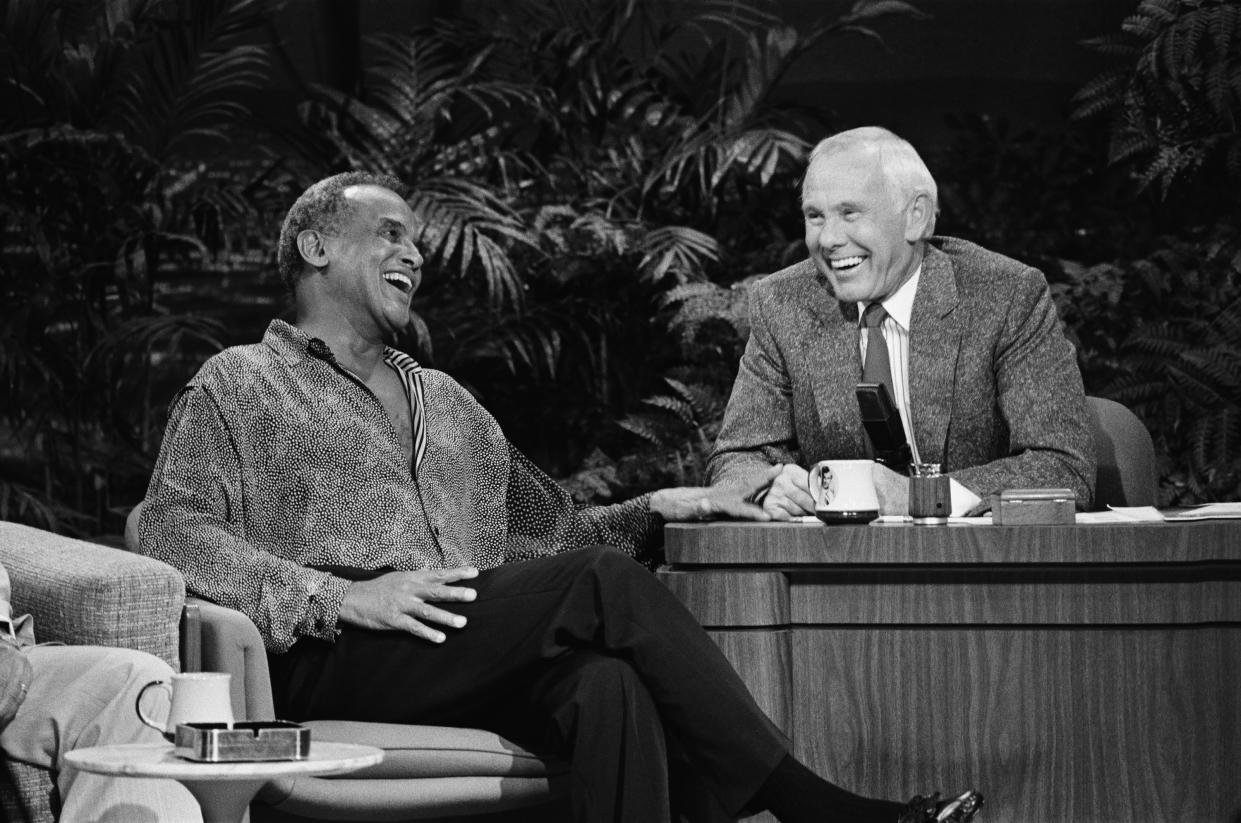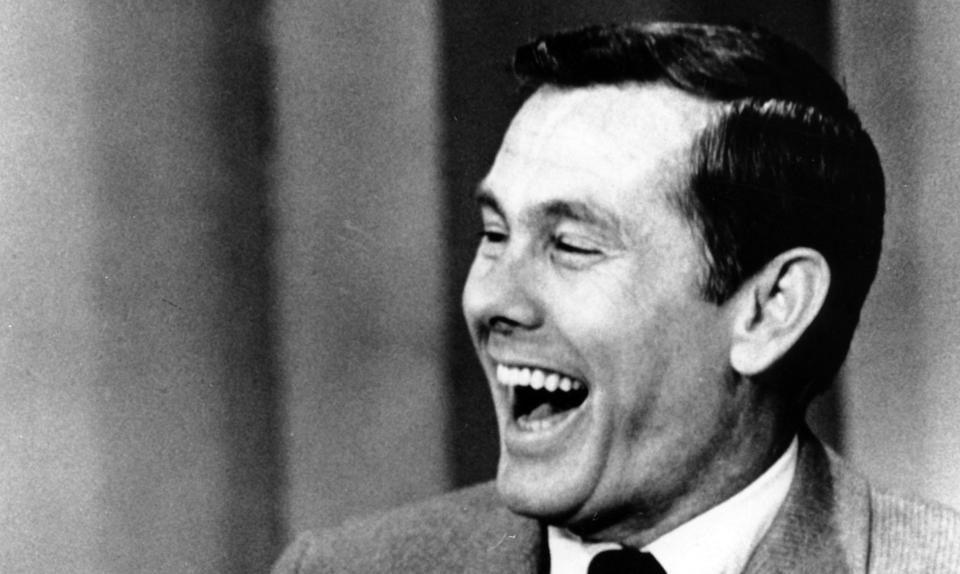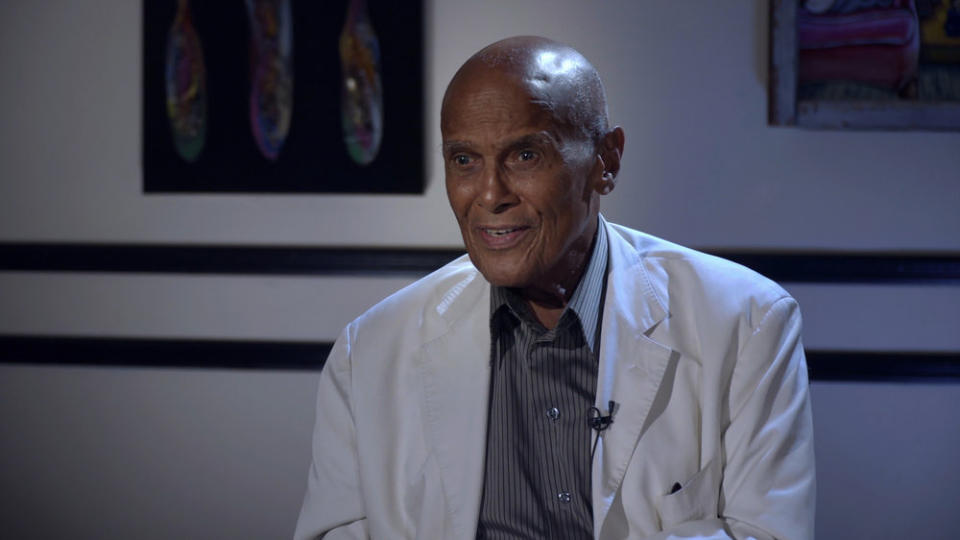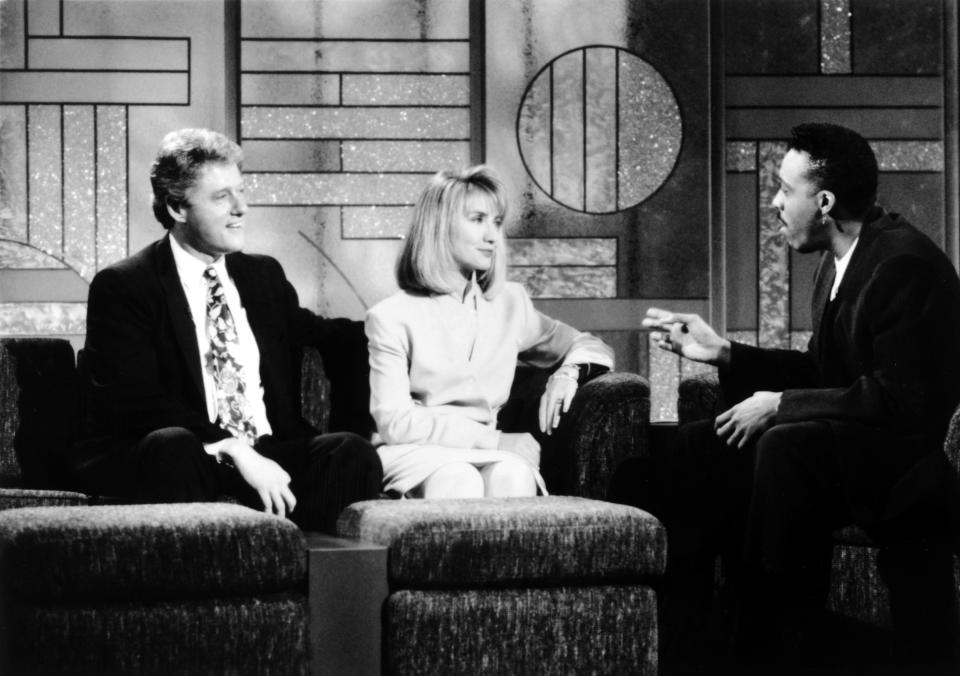'The Sit-In' reveals how Johnny Carson and Harry Belafonte made late night television history

In February 1968, Johnny Carson was six years into his multi-decade Tonight Show tenure when he was confronted with a serious reality check. Against the backdrop of the Vietnam War, the continued battle over civil rights and a looming presidential election, America was in the midst of a profound identity crisis — one that echoes in the present day. At the time, late night talk shows like The Tonight Show weren’t expected to comment on political issues, and Carson himself didn’t feel like he was the person to address subjects like racial injustice and America’s presence overseas. So he turned his platform over to someone who could: For one extraordinary week, renowned Black actor and activist, Harry Belafonte, took over The Tonight Show as a guest host and spoke with such leading entertainers and change-makers as Dr. Martin Luther King, Jr., Aretha Franklin, Robert Kennedy and Sidney Poitier.
Sadly, only portions of those episodes are viewable today, as The Tonight Show — like many programs at the time — taped over its episodes instead of archiving them. But Belafonte’s guest-hosting stint is reconstructed via surviving archival footage, audio recordings and memories from the star himself in Yoruba Richen’s new documentary, The Sit-In: Harry Belafonte Hosts the Tonight Show, which premieres on the Peacock streaming service on September 10. Speaking with Yahoo Entertainment, the filmmaker says that Carson’s decision to recuse himself in favor of Belafonte hinted at a secretly progressive attitude beneath his onscreen persona as a middle of the road Midwesterner. (Carson retired from The Tonight Show in 1992, and died in 2005. Belafonte returned as a guest several more times during his tenure, appearing for the last time in 1988.)

“The thought is that he was conservative politically, but we do know that he gave to Planned Parenthood, and when Martin Luther King was killed in April 1968, he delved into the reasons behind what was going on in the country,” Richen says of the late night legend. “So he was engaged in these issues, but he also knew that he was not the person to talk about it because he was seen as more conservative. He felt that the man who could and would speak to a wide audience was Harry Belafonte. This story just adds another layer to who he was.”
Richen also suggests that Carson’s carefully-crafted persona may be one reason why King never appeared on The Tonight Show until Belafonte hosted. “We forget how segregated television was at that time, and that’s what also makes that week of shows so groundbreaking. It wasn’t common for African-Americans to be on those shows at all. In fact, one of the NBC executives told Harry, ‘You’re going to have Martin Luther King on? He’s not going to talk about that Civil Rights stuff is he?’ And Harry said, ‘What’s he going to do — talk about about opera?’ So there was definitely some trepidation from the network, but Harry went ahead and did it and it turned out to be a great week.”

Yahoo Entertainment: How involved was Belafonte in crafting the guest list for his week of Tonight Show episodes?
Yoruba Richen: As one of our commentators says, he was the host and the booker! So he brought together his friends, the people that he knew. One of the things that was so fun to discover or rediscover while making the movie was understanding the depth that Harry had in bringing the Civil Rights movement to Hollywood. He had relationships with people like Martin Luther King and Robert Kennedy, and bringing them to a wide audience was one of his goals for the week.
At that point in King’s career, he was in a more controversial place than he had been earlier.
Yeah. This was actually King’s last televised interview before he was killed, and by 1968 he had been outspoken in his criticism of the Vietnam War, which the white public did not like. They wanted him to stick to integrationist policies and pushing that. And he was also talking about poverty and multi-racial coalitions, which his traditional African-American groups were not so pleased about, and he was seen by a sector of younger Black activists as being more conservative and old school. Harry was a bridge between those groups in a lot of ways. In the documentary, we have King historian, Taylor Branch, telling us how Harry would hold meetings at his house to bring together these different groups. Man, to have been a fly on the wall for those discussions!
What interested you about that period of The Tonight Show in particular?
1968 is such a pivotal year, and a real turning point in American society. There were riots, uprisings and a divisive election happening in November, so the similarities to today are pretty incredible. So the fact that Harry took the helm of one of the most popular shows on television and invited interracial artists and activists on the show talking about these divisive things was pretty incredible.
Is there a specific audio or video clip from Belafonte’s episodes that you treasure?
One of the things he did was he showed home movies of his family. In some ways it's a very kind of just normal thing to do, right? But he also wanted to show his interracial family as a sort of symbol: Here’s a normal American family and this is what we do. I mean, obviously, they’re not that normal because it’s still Harry Belafonte. But to open up and show his family to the audience was a really beautiful act. I think we should be inspired by his commitment: He’s been an activist all his life, and even at times when we feel despair, he’s still at it. We should learn from that.
What was the reaction among the viewing public? Did NBC get any complaints?
There were some complaints: Some people said they didn't want to be lectured to about these issues, which is funny because late night today is all about these social and political issues! But there was also great adulation for what Harry did, and the ratings were great.
At the same time, the documentary notes that the networks avoided creating a late night talk show hosted by a Black performer for a long while.
The proof is in the pudding: After Harry, we didn’t have any sustained African-American late night hosts until Arsenio Hall in the 1990s. That’s almost 20 years.
How do you think Arsenio Hall handled politics on his show? Do you wish he had been a stronger voice for activism?
I think what Arsenio was doing at the time was pretty groundbreaking as well because it hadn't been done before. He brought guests that were not seen on mainstream on the other white networks, but he also had Bill Clinton playing the saxophone. There are other ways to be political besides just talking about politics.

Bringing it up to the present day, Trevor Noah is the most prominent Black late night show host right now. Do you see his Daily Show as a modern-day descendent of Belafonte’s Tonight Show?
I think Trevor is great: He’s funny and smart. The difference is that he’s a comedian, whereas Harry was not that. He talks about that in the film: He says, “I don’t make jokes.” So the way Trevor looks at politics and builds humor around it is great.
Over the summer, Jimmy Kimmel had a series of guest hosts filling in for him, including Shaquille O’Neal and Tracee Ellis Ross. Is contemporary late night TV missing something by not having a guest host like Harry Belafonte who is known for speaking to social issues directly?
Yeah, I think TV is missing that and I think it would behoove any of the Jimmys to do it, I really do. Especially in this time that we're in, people would really appreciate that kind of deep commitment combined with entertainment, as well as bringing on guests that set the tone for the things that we are dealing with as a society. As an African-American, our lens is going to be different, that’s just the nature of our experience in this country. And I’m not saying that everybody would say the same thing, but the understanding and even the jokes would be different coming from a comedian with family members or friends who experienced police brutality or have experienced it themselves in some manner. And the types of guests they’d want to bring on would be different as well.

The current version of The Tonight Show hosted by Jimmy Fallon has shied away from politics in recent years. Would you like to see it become more political?
I don't think it's about necessarily The Tonight Show having to do it. When Harry hosted there where what, three channels? We live in a very different world, and one that’s more about supporting other shows that do it. We interviewed Robin Thede, who has her own late night show on HBO that’s really smart and combines politics and topical issues with entertainment. So I think it’s about supporting other shows that do it and giving them that time to grow and to find an audience — often shows that are hosted by people of color or African-Americans are not given that time. It’d be great to see some of the younger comedians who are coming up and are political get that chance. There’s a wide assortment to choose from.
Over the summer, both Fallon and Kimmel apologized for using blackface earlier in their careers. Does that impact any authority they might have when they do try to speak out on issues of the day?
We're obviously having a racial reckoning in this country, right? And hopefully it will be sustained. And so white folks are having to look at what they’ve done and what they've put out there. I mean, the fact that the country just got rid of Aunt Jemima is incredible. So there's a racial reckoning and a reassessment that we haven't seen before, and those blackface episodes are part of that. If their apologies seem genuine, then people can accept it. It doesn’t necessarily undermine their political commentary, it just depends on how it’s done.
The Sit-In is currently streaming on Peacock.
Read more from Yahoo Entertainment:

